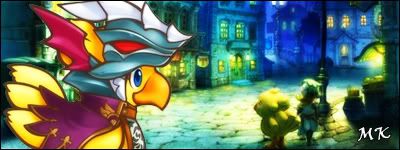The Performer
As an ESFP, your primary mode of living is focused externally, where you take things in via your five senses in a literal, concrete fashion. Your secondary mode is internal, where you deal with things according to how you feel about them, or how they fit with your personal value system.
ESFPs live in the world of people possibilties. They love people and new experiences. They are lively and fun, and enjoy being the center of attention. They live in the here-and-now, and relish excitement and drama in their lives.
ESFPs have very strong inter-personal skills, and may find themselves in the role of the peacemaker frequently. Since they make decisions by using their personal values, they are usually very sympathetic and concerned for other people's well-being. They're usually quite generous and warm. They are very observant about other people, and seem to sense what is wrong with someone before others might, responding warmly with a solution to a practical need. They might not be the best advice-givers in the world, because they dislike theory and future-planning, but they are great for giving practical care.
ESFP is definitely a spontaneous, optimistic individual. They love to have fun. If the ESFP has not developed their Thinking side by giving consideration to rational thought processing, they tend to become over-indulgent, and place more importance on immediate sensation and gratification than on their duties and obligations. They may also avoid looking at long-term consequences of their actions.
For the ESFP, the entire world is a stage. They love to be the center of attention and perform for people. They're constantly putting on a show for others to entertain them and make them happy. They enjoy stimulating other people's senses, and are extremely good at it. They would love nothing more than for life to be a continual party, in which they play the role of the fun-loving host.
ESFPs love people, and everybody loves an ESFP. One of their greatest gifts is their general acceptance of everyone. They are upbeat and enthusiastic, and genuinely like almost everybody. An ESFP is unfailingly warm and generous with their friends, and they generally treat everyone as a friend. However, once crosesed, an ESFP is likely to make a very strong and stubborn judgment against the person who crossed them. They are capable of deep dislike in such a situation.
The ESFP under a great deal of stress gets overwhelmed with negatives thoughts and possibilities. As an optimistic individual who lives in the world of possibilities, negative possibilities do not sit well with them. In an effort to combat these thoughts, they're likely to come up with simple, global statements to explain away the problem. These simplistic explanations may or may not truly get to the nature of the issue, but they serve the ESFP well by allowing them to get over it.
ESFPs are likely to be very practical, although they hate structure and routine. They like to "go with the flow", trusting in their ability to improvise in any situation presented to them. They learn best with "hands-on" experience, rather than by studying a book. They're uncomfortable with theory. If an ESFP hasn't developed their intuitive side, they may tend to avoid situations which involve a lot of theoretical thinking, or which are complex and ambiguous. For this reason, an ESFP may have difficulty in school. On the other hand, the ESFP does extremely well in situations where they're allowed to learn by interacting with others, or in which they "learn by doing".
ESFPs have a very well-developed appreciation for aesthetic beauty, and an excellent sense of space and function. If they have the means, they're likely to have to have many beautiful possessions, and an artfully furnished home. In general, they take great pleasure in objects of aesthetic beauty. They're likely to have a strong appreciation for the finer things in life, such as good food and good wine.
The ESFP is a great team player. He or she is not likely to create any problems or fuss, and is likely to create the most fun environment possible for getting the task done. ESFPs will do best in careers in which they are able to use their excellent people skills, along with their abilities to meld ideas into structured formats. Since they are fast-paced individuals who like new experiences, they should choose careers which offer or require a lot of diversity, as well as people skills.
ESFPs usually like to feel strongly bonded with other people, and have a connection with animals and small children that is not found in most other types. They're likely to have a strong appreciation for the beauties of nature as well.
The ESFP has a tremendous love for life, and knows how to have fun. They like to bring others along on their fun-rides, and are typically a lot of fun to be with. They're flexible, adaptable, genuinely interested in people, and usually kind-hearted. They have a special ability to get a lot of fun out of life, but they need to watch out for the pitfalls associated with living entirely in the moment.
Jungian functional preference ordering:
Dominant: Extraverted Sensing
Auxiliary: Introverted Feeling
Tertiary: Extraverted Thinking
Inferior: Introverted Intuition






 [BR]
[BR]



















Bookmarks